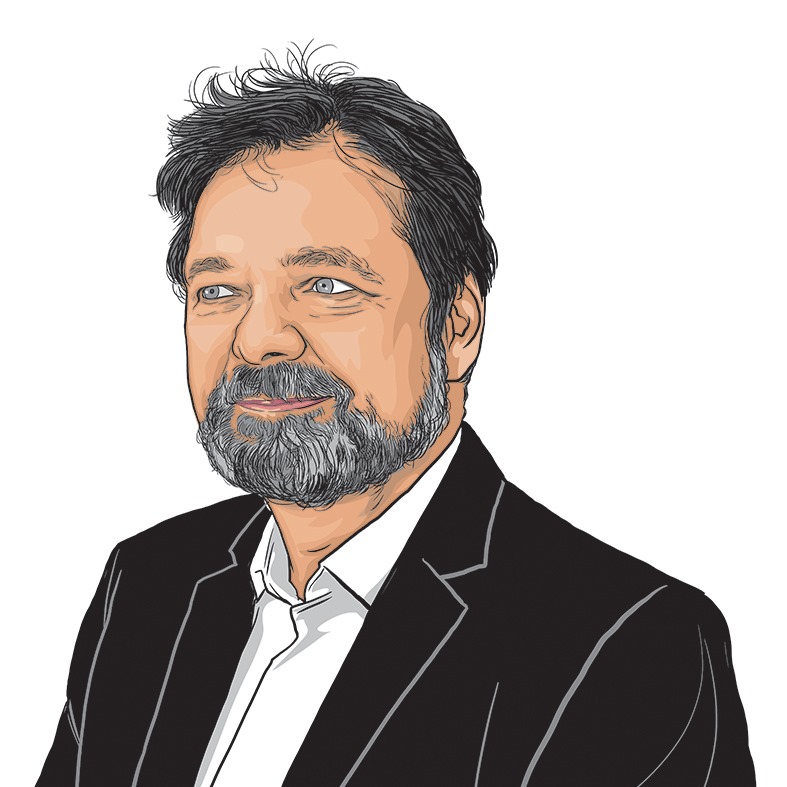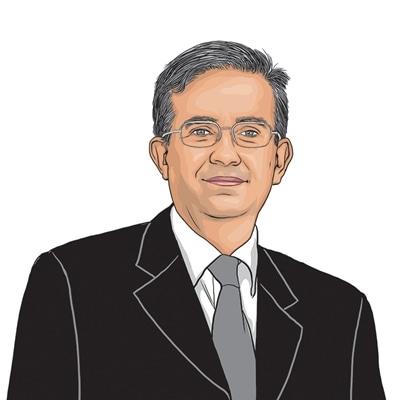Opinion Two years on, global support for Ukraine won’t falter
Only one side in the is committed to peace and diplomacy
 Gen. Mykola Oleshchuk thanked Ukraine's military intelligence for helping down the Russian A-50 aircraft on Russia's military holiday on Friday. (Image source: Reuters)
Gen. Mykola Oleshchuk thanked Ukraine's military intelligence for helping down the Russian A-50 aircraft on Russia's military holiday on Friday. (Image source: Reuters) Two years ago, to the day, President Vladimir Putin launched an unprovoked war of aggression against Ukraine with far-reaching, dramatic consequences. Consequences for the Ukrainian people who have been valiantly resisting the invasion and facing Russia’s indiscriminate attacks against civilian targets.
Consequences also for the rest of the world. As underscored in the France-India Joint Statement of January 26, the entire world has to endure the economic and food security impact of the war, with developing and least developed countries suffering the most. Why must poorer countries pay the price of Russia’s misguided invasion?
Two years ago, President Putin thought he could march into Kyiv and take Ukraine by force, in pursuit of his imperialist vision. Two years later, it is increasingly obvious that Russia has already suffered defeats in many ways. It has failed to prevail over a smaller and weaker country. European and Euro-Atlantic alliances have only grown stronger, with Sweden and Finland joining NATO.
Both Germany and France have recently underscored their strong bilateral support for Ukraine. On February 16, both Chancellor Olaf Scholz and President Emmanuel Macron signed security agreements with President Volodymyr Zelenskyy for the next 10 years, with very significant announcements of additional military aid in 2024. The European Union has opened accession negotiations with Ukraine. At the United Nations, 143 countries have condemned Russia’s war. The human, military, economic, and diplomatic toll for Russia keeps mounting.
France and Germany, together with their European partners and the EU, will continue to provide unwavering support to the Ukrainian people’s right to self-defence. We are clear-sighted on what is at stake in Ukraine, and that is why our support will not falter. Taking place in Europe, this conflict is obviously crucial for European security. But its repercussions matter well beyond Europe. What is at stake on the battlefields of Ukraine is a simple question: Can a powerful country annex its weaker neighbour by force? The answer to this question will define international peace and security in this century. It will determine whether we plunge into an “era of war”. A Russian victory in Ukraine would only encourage imperialist appetites across the world. It would mean greater insecurity in every region.
No responsible nation wishes to live in a world where might makes right and where a stronger neighbour can violate international borders by force. It is the opposite of a world where international life obeys a set of fundamental principles. Germany and France are determined to uphold the basic principles of the United Nations Charter wherever they are undermined: We defend them as forcefully in Europe as we do in the Indo-Pacific. And we do so together with key strategic partners such as India. India is a major, responsible power that has both the capacity and the willingness to step up in defence of the rule of law. The world needs India’s voice to carry louder.
That is why France and Germany supported the Indian G20 Presidency’s push for ambitious language on the conditions for peace in Ukraine. As stated in the New Delhi G20 Leaders’ Declaration, peace in Ukraine must be “comprehensive, just, and durable” and “uphold all the purposes and principles of the UN Charter”. Only if these principles are respected, can peace in Ukraine keep the spectre of an “era of war” away.
Unfortunately, that is not Russia’s position so far. What Moscow calls “negotiation” is actually a maximalist call for Ukraine’s surrender and the annexation of its territories, in complete contradiction to the principles of international law. This is because President Vladimir Putin, in his own words, fundamentally denies the very right of Ukraine to exist as an independent nation. This is no path to negotiation and peace.
In contrast, Kyiv has put forward a 10-point peace plan, based on the principles of the UN Charter, to bring about a just and durable end to the war. And Ukraine has strived to associate as many countries as possible to chart a way to peace: From Copenhagen to Jeddah, Malta, and, more recently, Davos, there are now more than 80 countries from all continents, including India, involved in these talks. Ukraine has also made it possible to ensure a grain corridor out of its ports in the Black Sea, thus mitigating the global food security impact, despite Russia cancelling the Black Sea Grain Initiative. It is clear on which side the real commitment to peace and diplomacy lies. Russia, however, seems to have chosen to slide further towards a dead end, although it is in Moscow’s hands to end its invasion. The situation is difficult. But two years after the Russian aggression, we must more than ever support all efforts to find a pathway to peace.
Mathou is Ambassador of France to India and Ackermann is Ambassador of Germany to India







